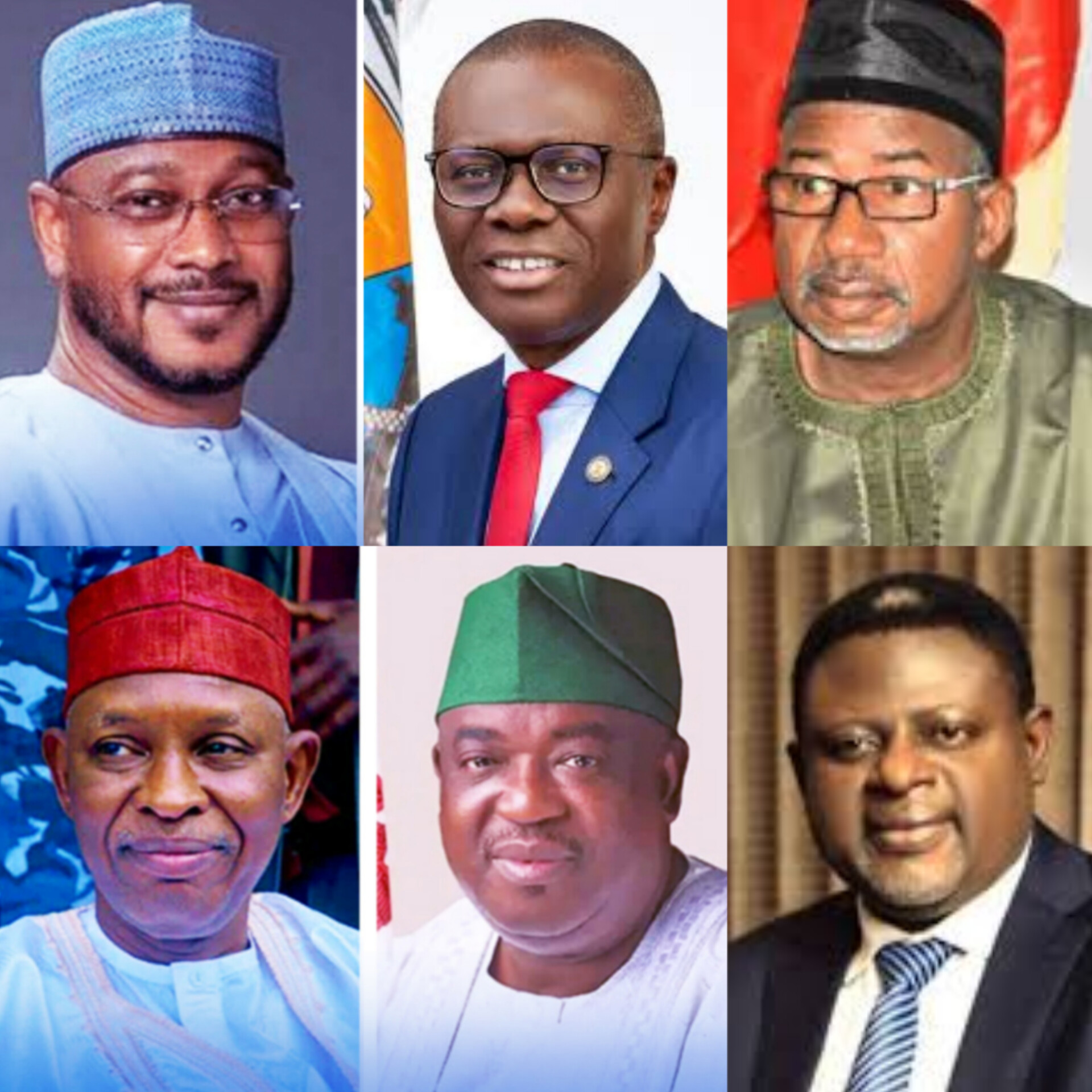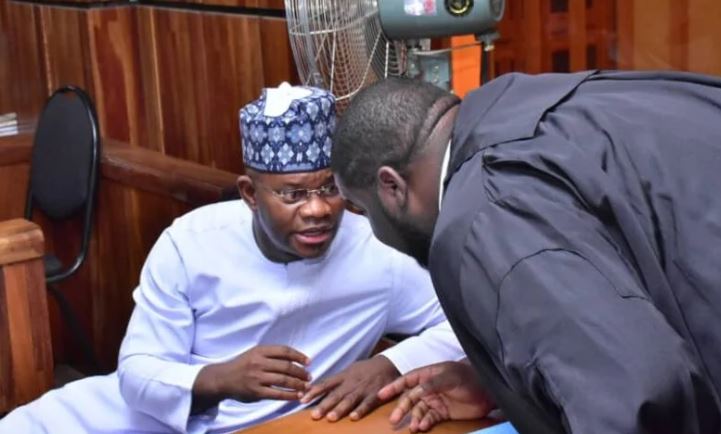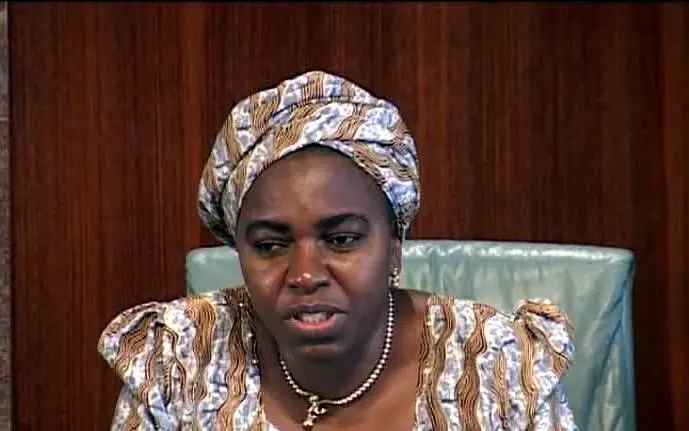Apprehension has gripped Seven States, as the Nigerian Apex Court has hinted it will deliver judgements in seven governorship appeals on Friday, January 12, 2024, beginning from 9am.
The states includes Lagos, Kano, Zamfara, Plateau, Ebonyi, Bauchi and Cross River.
Sanwo-Olu VS GRV, Jandor
The Appeal Court in Lagos in November affirmed the judgment of the tribunal, confirming the return of Babajide Sanwo-Olu and Obafemi Hamzat as the Governor and Deputy Governor of Lagos state.

The justices of the court of appeal in a unanimous decision dismissed the appeal of the Peoples Democratic Party (PDP) and the Labour Party (LP) for lack of merit.
In March, INEC declared Sanwo-Olu as the winner of the Lagos governorship election.
Sanwo-Olu polled 762,134 votes to defeat his close challenger, LP’s Gbadebo Rhodes-Vivour also known as GRV, who scored 312,329 votes. PDP’s Abdulazeez Adediran popular as Jandor came a distant third with 62,449 votes.
Not satisfied, the LP and PDP candidates approached the Lagos State Election Petitions Tribunal to nullify Sanwo-Olu’s victory.
In its ruling on September 25, the tribunal dismissed Adediran and Rhodes-Vivour’s suit seeking to nullify the victory of Sanwo-Olu at the poll.
Displeased with the verdict, the duo approached the appellate court but the higher court dismissed their suits. Both men subsequently approached the apex court which is expected to deliver a judgement on Friday.
Nwifuru VS Odii
The Supreme Court had on Tuesday reserved judgement in the Ebonyi State governorship election appeal.
Last November, the Court of Appeal in Lagos had affirmed the election of APC’s Francis Nwifuru as the duly elected governor of Ebonyi State in the March 18 governorship election.
The three-member panel presided over by Justice Jummai Sankey, in its unanimous decision, dismissed the appeal filed by PDP’s Chukwuma Odii and upheld the earlier verdict of the tribunal but the PDP candidate approached the apex court to seek redress
Yusuf VS Gawuna
Late December, the apex court reserved judgement in the appeal filed by the Kano State Governor, Abba Yusuf, challenging the verdict of the Court of Appeal and the State Election Petitions Tribunal, which removed him from office.
The five-member panel led by Justice John Okoro reserved the judgement after the parties adopted their brief of arguments.
In September, the tribunal nullified the victory of Yusuf, the candidate of the New Nigeria’s Peoples Party (NNPP) in the March 18 governorship election.
The tribunal also affirmed Nasiru Gawuna of the All Progressives Congress (APC) as the duly elected governor of Kano.
On November 13, the Court of Appeal upheld the verdict of the tribunal. In its ruling, the Appeal Court agreed with the judgement of the tribunal, ruling that the fielding of Abba Yusuf was in breach of the Electoral Law as he was not qualified to contest that election. But the governor proceeded to the Supreme Court to seek redress.
Lawal VS Matawalle
Last November, the Appeal Court nullified the election of Zamfara State Governor Dauda Lawal.
Lawal, of the main opposition PDP, was declared the winner of the March 18 governorship election. In a shocking victory that dislodged then-incumbent Bello Matawalle of the All Progressives Congress (APC), he polled a total of 377,726 votes. Matawalle scored 311,976 votes.
The PDP candidate, now serving as the Minister of State for Defence, had accused INEC of subverting his victory at the poll by failing to include the results of some ward areas.
In an earlier ruling on September 18, the Zamfara Election Petitions Tribunal held that the petition was devoid of merit. While upholding Lawal’s victory, the tribunal awarded the N500,000 fine against the petitioners.
An unsatisfied Matawalle, as observers expected, took the matter to the Court of Appeal in Abuja, to challenge the decision of the lower court.
Respite came for Matawalle on Thursday as the three-member panel led by Justice Oyebisi Folayemi, nullified the return of Governor Lawal as the winner of the governorship poll.
Justice Sybil Nwaka ordered INEC to conduct a fresh election in three local government areas of the state, where elections had not been held previously or where results from various polling units were not counted.
But the governor proceeded to the apex court to seek redress.
Mohammed VS Abubakar
Also in November, the appellate court affirmed the victory of Governor Bala Mohammed of Bauchi State in the March 18 governorship election.
The appeal was filed by the All Progressives Congress (APC) governorship candidate, Sadique Abubakar, following the tribunal judgment upholding Mohammed’s victory.
The panel of three justices were unanimous, awarding no cost as the court ruled that each party to the matter should bear their costs.
The presiding judge, Justice Chidi Nwaoma Uwa, read the judgment in the order of the appellant’s plea before the appeal court.
On plea number one, the appellant pleaded that the election be nullified because the forms and booklets used in the election were not properly filled. The court ruled that the appellant failed to prove this allegation with the needed evidence.
Mutfwang VS Goshwe
On January 9, 2024, the Supreme Court reserved judgement in the appeal filed by the Governor of Plateau State, Caleb Mutfwang, seeking to overturn the verdict of the Court of Appeal which nullified his election.
A five-member panel of justices led by Justice John Okoro reserved judgement after hearing arguments from parties for and against the appeal.
The governor through his counsel, Kanu Agabi, prayed the court to uphold the judgement of the Tribunal and set aside the judgment of the appellate court because the respondents have no right to question how a party elects its state executives.
He said the respondents (Nentawe Goshwe and the All Progressives Congress) can not plead that the governor did not score the number of lawful votes ascribed to him at the same time say the election was invalid.
In November, the Appeal Court in Abuja sacked Mutfwang and ordered the Independent National Electoral Commission (INEC) to issue a Certificate of Return to Goshwe but the governor proceeded to the apex court to seek redress.



